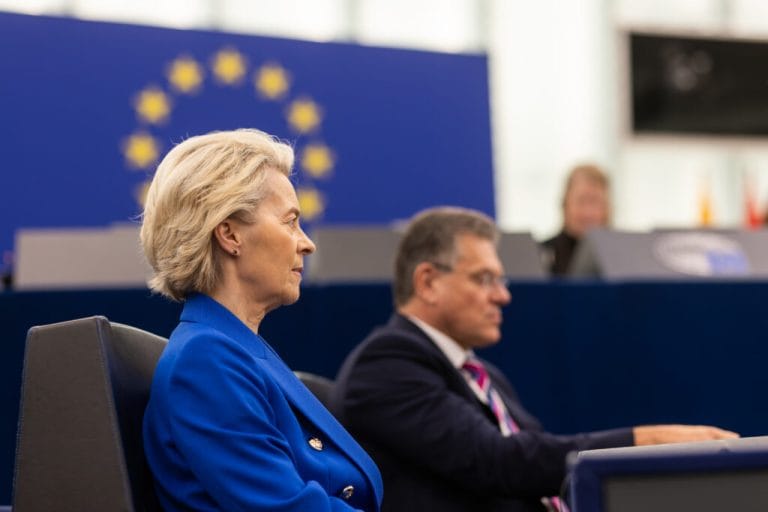🎧 Listen to This Article
The European Union’s recently brokered trade truce with the United States is under renewed pressure as Washington threatens retaliation over the bloc’s digital services taxes and tech regulations, raising the prospect of new tariffs on EU goods.
The summer trade deal had capped tariffs at 15%, a compromise EU leaders accepted to prevent an escalating trade conflict. However, US President Donald Trump has revived tensions, arguing that EU levies disproportionately target American tech giants including Google, Amazon, and Meta. In a recent post on Truth Social, Trump warned that countries imposing such rules could face “substantial additional tariffs” and restrictions on advanced US technologies such as semiconductors.
The EU’s regulatory framework, including the Digital Services Act (DSA) and Digital Markets Act (DMA), enforces stricter content moderation and market conduct rules for dominant online platforms. Additionally, several member states have introduced national digital services taxes on online revenues, particularly from advertising and user data monetization.
Economists note that these measures are intended to ensure fair taxation and competitive digital markets, rather than to punish US companies. Roel Dom, a research fellow at Bruegel, said, “There is a perception that mostly US big tech companies generate large profits in the EU that are not fairly taxed here. EU states aim to tax profits where they are generated.”
EU policymakers were reportedly surprised by Trump’s threats, which come weeks after the bloc signed the trade deal designed to stabilize transatlantic relations. Brussels retains the right to enforce its Corporate Sustainability Due Diligence Directive (CSDDD), which mandates companies to address human rights and environmental harms across global supply chains.
Past EU enforcement actions, including fines of €500 million to Apple and €200 million to Meta, illustrate the bloc’s commitment to uphold its regulatory standards. Analysts caution that yielding on digital regulation could set a dangerous precedent for EU sovereignty in global tech governance.
While the EU can consider deploying its Anti-Coercion Instrument (ACI) — which allows countermeasures including tariffs, export controls, and investment restrictions — political and practical challenges make its use uncertain. Economists argue the bloc must balance assertive responses with the risk of escalating tensions with its largest trading partner.
As transatlantic trade talks enter a delicate phase, the EU faces the dual challenge of maintaining regulatory sovereignty while managing economic and political pressures from the US.
For further details, clarification, contributions, or any concerns regarding this article, please get in touch with us at editorial@tax.news. We value your feedback and are committed to providing accurate and timely information. Please note that our privacy policy will handle all inquiries.



